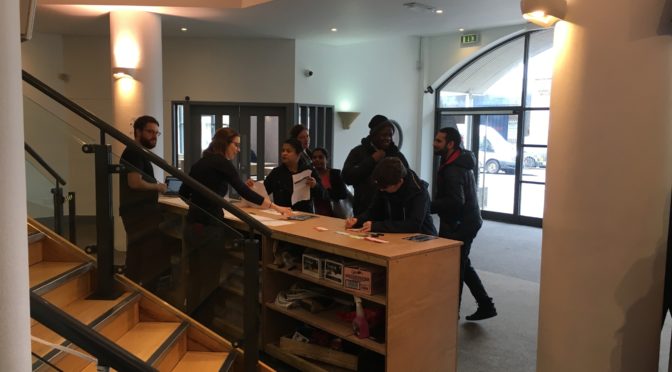TL;DR
This post is about my takeaways from workshop Brighton 2017 day. I attended Alessandra Moreira’s Agile Exploration and Michael Bolton’s Critical Thinking. Post is not an easy read.
First we had opening keynote by Kevin Harris Kick-Ass-Kick offs! It was about project kick off meeting. Here are some points that sticked with me:
- freeze requirements
- be prepared, do your reading
- small is beautiful (stories context)
- ASK QUESTIONS!
- reveal your testing strategy (I am going to test like that) in order to get feedback
- test on developer machine early
- other stuff (performance, security)
- definition of done
- create your mnemonics
In Q&A session, I applied advice: ASK QUESTIONS! I asked audience: Have you ever been in situation were requirements were frozen in Kick off meeting?
Kevin answer was that requirement change requires new kick off meeting, but what about scenario when customer frequently changes requirements? Does that increases frequency of kick off meetings, or do we wait for “customer cool” off time?
Workshop: Agile exploration by Alessandra Moreira
I have read (and practice) a lot about exploration testing, so my goal with this workshop was reality check about the topic. Here are my takeaways.
- We use exploratory testing to find additional problems. For me this is just extension to it, one way of using it.
- Software testing is to provide many types of information about product to interesting parties.
- Software testers bring to project their specific MINDSET.
- How to do exploratory testing: heuristics, critical thinking, questioning
- Critical thinking is thinking about what we think.
- Weinberg rule of 3, think of three different ways to do something
- Six honest man, 5 W questions + how.
- James Bach session test management
- tool for session test management?
- Michael Bolton created spread sheet for session test management automatic report creation
We created groups of three to implement session test management on Instapaper. My group decided to test search feature and one group member, experienced with Jira Capture, made notes for our session. In cooperation we made great notes, and found some interesting behavior in advanced search feature.
Workshop: Critical thinking for testers with Michael Bolton
Here are my takeaways:
- Calculator test assignment. Fell in trap again, despite the fact that I have done it on Rapid software testing course
- Testers help to remove risks that jeopardize quality
- assumptions => state them => their become your proxy for questions => do not go too deep
- NEVER MAKE ASSUMPTIONS!
- We often state that our ASSUMPTION is TRUE but with NO EVIDENCE
- From assumption (premise), using reasoning to real cause
- assumptions: reckless (high risk), risky (risk is acceptable), safe (no risk), required
- assumption is more dangerous when it is hard to support it, there are too many factors to support it and has high impact
- Reading: Validity and reliability in quantitative studies
- Assumption can be: foundational, unlikely, blind, controversial, impolitic, volatile, unsustainable, premature, narcotic, latent
- assignment: bat costs 1$ more than ball. Together they cost 1.10$. How much ball cost?
- Reading: Thinking fast and slow
- Keep your eyes on the ball and the game
- When you are too focus, you will miss something else
- Alternate from wide to narrow view
- Experience is the best teacher
- Learn from every bug
- Reading: Nassim Taleb: Black swan
- Some bugs are obvious
- Justify why you think this is a bug (unconscious factors, memory habit)
- system 1 (reflex, fast, loser) and system 2 (reflection, slow, surer)
- SOFTWARE TESTER MUST NOT GET FOOLED
- Three stories: project, testing, product
- Cognitive bias, help us to survive, but not help us with bugs (illusion, miss, quick decision, memory errors)
- PEOPLE SHOULD (NOT) ARGUE ABOUT SEMANTICS
- What is an integer?
- Heuristic is way to solve a problem that could fail in that mission
- As tester, you must give SYSTEM 2 time to WAKE UP!
- PAUSE
- I do not understand, I understand but it is not true, what is whole story, does it matter?
- Conversation flow: intake => meaning => significance => response
-
Builder has focused mindset and tester has defocused mindset
- Reading: Asking the right question. A guide to critical thinking.
- A vs THE
- And, unless, also, so far, not yet (be careful when you here those!)
- Reading: How to not be wrong



